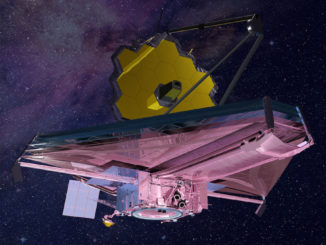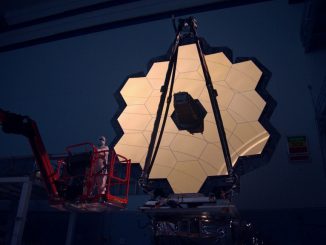
James Webb Space Telescope






Large number of dwarf galaxies discovered in the early universe
Researchers have found a large population of distant dwarf galaxies that could reveal important details about a productive period of star formation in the universe billions of years ago. It is believed that dwarf galaxies played a significant role during the so-called reionisation era in transforming the dark early universe into one that is bright, ionised and transparent.

Who stole all the stars?
Investigating the millions of missing stars from the centres of two big galaxies, researchers say they may have solved this cosmic whodunit — and the main culprits are not the usual suspects. While the astronomers confirm that one of the depleted cores is the largest ever detected, they report that it may not have formed in the manner previously thought.

Using oxygen as a tracer of galactic evolution
A new study comprised of 7,000 galaxies casts light on how young, hot stars ionise oxygen in the early universe and the effects on the evolution of galaxies through time. The study presents the first measurements of the changing strengths of oxygen emission lines from the present day and back to 12.5 billion years ago.

The Frontier Fields: where primordial galaxies lurk
In the ongoing hunt for the universe’s earliest galaxies, NASA has wrapped up its observations for the Frontier Fields project. This ambitious venture has combined the power of all three of NASA’s orbital observatories — the Spitzer Space Telescope, the Hubble Space Telescope and the Chandra X-ray Observatory — to delve as far back in time and space as current technology can allow.

Nearby Venus-like exoplanet might have oxygen atmosphere
The distant planet GJ 1132b intrigued astronomers when it was discovered last year. Located just 39 light-years from Earth and orbiting its red dwarf star every 1.6 days, new research shows that despite being baked to a temperature of around 232 °C, GJ 1132b might possess a thin, oxygen atmosphere — but no life due to its extreme heat.
